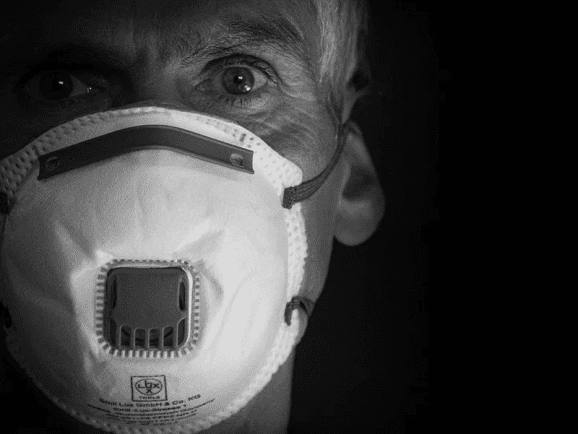
The coronavirus pandemic sweeping the globe has not only left many anxious about life and death issues, it's also left people struggling with a host of less obvious losses. As people try to follow new stay-home warnings and fret over how bad all of this is going to get, they aren’t as readily talking about how these changes are affecting them. Going through these uncertain times, we each are losing everything that once made us feel normal: social connections, jobs, day-to-day routines, and our overall sense of security.
Terri Daniel, an interfaith chaplain and trauma counselor, says in order to move forward we have to acknowledge and grieve these changes. "We need to recognize that mixed in with all the feelings we're having of anger, disappointment, perhaps rage, blame, and powerlessness – is grief," says Daniel. If left unchecked, the grief we feel can negatively impact our overall health both physically and mentally.
What we have all lost.
Whether we are choosing to acknowledge it or not, there are many things as a society we have lost together. The most recognized change has been the disruption of our social connections. Having to be separated from friends and family, colleagues and even our favorite local bartender is having an effect on us. Even if we don’t love spending time with each person we would normally see each day, there is still a sense we all depend on each other to navigate our day-to-day lives. We also have no desire to see something bad happen to one another.
We also are feeling that our world is no longer safe to inhabit like we once did. We are afraid to go outside for fear we could quickly get sick. Even the most mundane of tasks, like hitting a crowded grocery store on Sunday afternoon, gives us a sense of routine. When we lose that routine it “shocks the system” says Daniel. Our assumption that we can go to bed each day and wake up to a bright shining sun doesn’t exist quite like it once did. We don’t feel secure or safe.
Some of us also have had issues in feeling they no longer can trust our governing bodies. When different organizations, from religious bodies to medical systems, fail to meet public expectations we feel betrayed. Even if we haven’t seen failures first hand, knowing that others are passing away due to the virus and the lack of its control are hurting us mentally. We are empathetic for those most vulnerable and are saddened that we cannot help.
Understanding our feelings as a society.
What we are experiencing is completely novel to our society, and that can be difficult to navigate. It’s not something, though, that we are going through alone. We are experiencing this on an individual and societal level. This allows us the chance to work through our pain together.
David Kessler, who is known for his books and research on grief, said in an interview that "We’re feeling a number of different griefs. We feel the world has changed, and it has. We know this is temporary, but it doesn’t feel that way, and we realize things will be different. Just as going to the airport is forever different from how it was before 9/11, things will change and this is the point at which they changed. The loss of normalcy; the fear of economic toll; the loss of connection. This is hitting us and we’re grieving. Collectively. We are not used to this kind of collective grief in the air."
"Anticipatory grief is also more broadly imagined futures. There is a storm coming. There’s something bad out there. With a virus, this kind of grief is so confusing for people. Our primitive mind knows something bad is happening, but you can’t see it. This breaks our sense of safety. We’re feeling that loss of safety. I don’t think we’ve collectively lost our sense of general safety like this. Individually or as smaller groups, people have felt this. But all together, this is new. We are grieving on a micro and a macro level," he continued.
Working through our grief.
Once we have given a name to how we are feeling we are able to manage it better. Grief is not something to be solved, but something that we accept and move forward with. Sharing our stories and honoring our feelings will help us get through them gracefully. Daniel says that "If you can't talk about what's happened to you and you can't share it, you can't really start working on it." So it’s important to reach out to others and communicate about your experience. Picking up the phone and calling someone can be extremely effective.
Meditation, writing, exercise, or art can be a great way to also share the grief we are going through. Regular pauses in our day where we can slow down and calm our souls will lower stress. It also gives us a safe space where we allow ourselves to express and feel what we are going through.
The coronavirus has completely changed how we handle our day-to-day activities. Some of us are adjusting to the change well, while others are feeling the pain of change a little bit harder. No matter what, we are all feeling loss and grief even if we don’t acknowledge it. However, if we recognize that the world has changed and lean into those feelings, we will be able to come out on the other side stronger than before.

